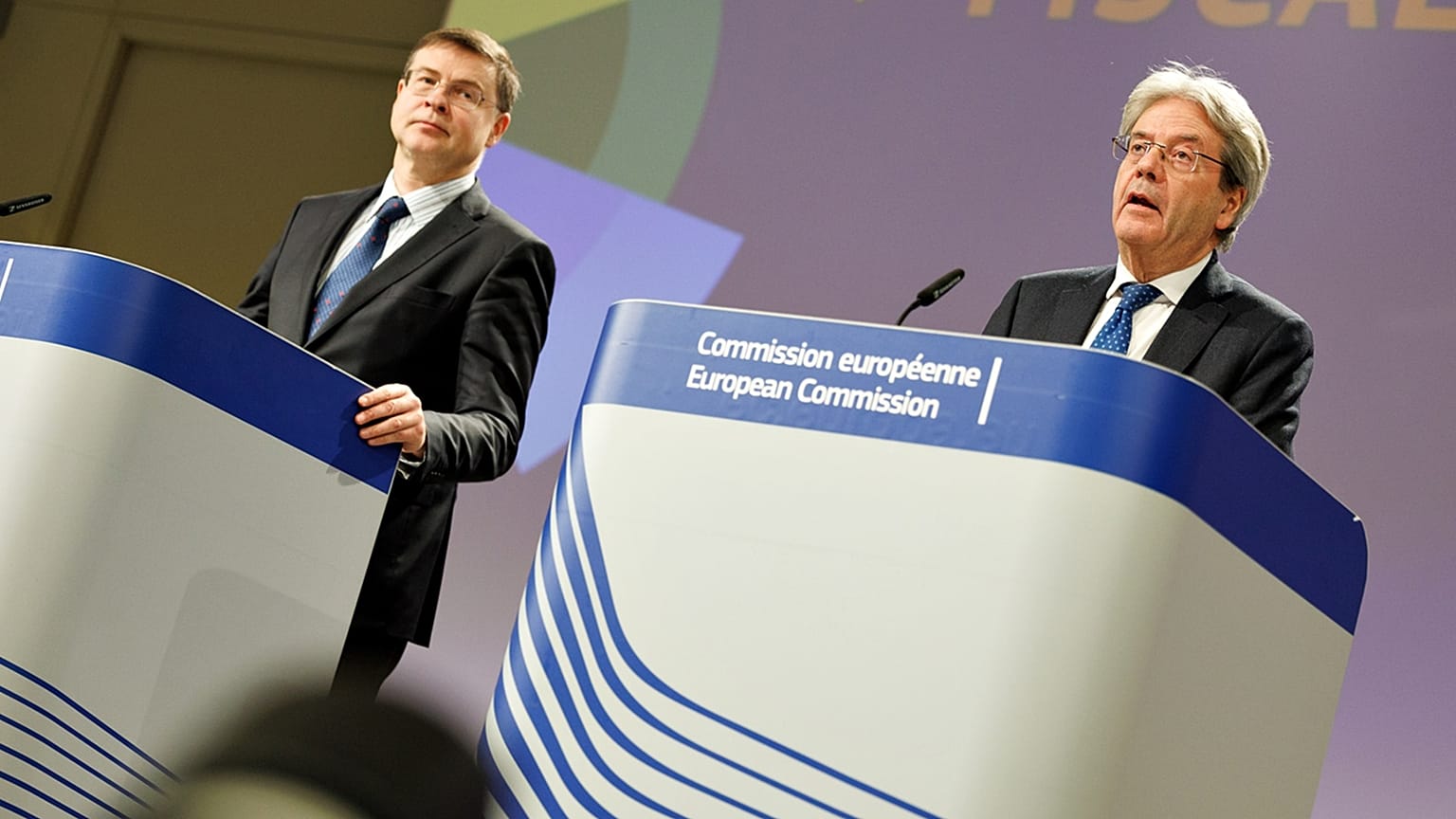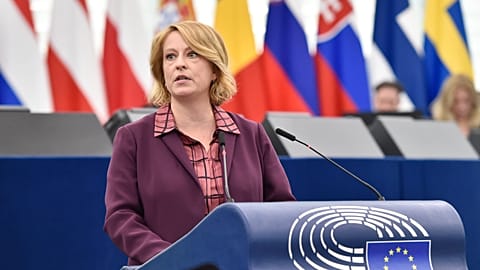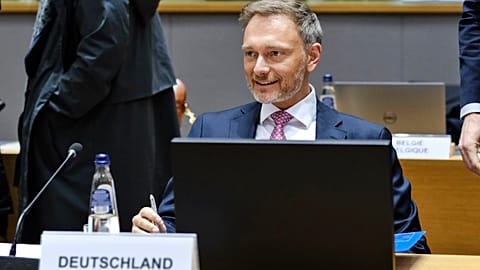Under current fiscal rules, member states are bound to keep their deficit levels under 3%, a figure that many currently exceed.
With the European economy still figuring out how to grow amid Russia's war in Ukraine, a fragile energy market and stubbornly high inflation, the European Commission has decided to delay sanctions on member states with excessive deficit levels until at least spring 2024.
Under current rules, all EU countries are bound to keep their public deficit below 3% and their debt-to-GDP ratio below 60%, thresholds that many currently exceed by a significant margin after years of pumping money to cushion the fallout from the COVID-19 pandemic, the war and the energy crisis.
The enforcement of these fiscal rules was suspended at the beginning of the coronavirus outbreak and remains switched off to this day, which means the European Commission has not slapped any government with penalties.
But the executive believes the suspension has gone for far too long and is determined to bring back the rules in full force as of January 2024, a move that will depend on how fast member states agree on a proposed reform that would grant capitals greater flexibility in drafting their budgets.
Once the new framework is put in place, the Commission will be able to launch again the so-called excessive deficit procedures (EDP) in the spring of 2024.
This procedure entails stricter supervision over countries that have surpassed the 3% deficit level and is aimed to ensure spending returns to a healthier trajectory in the medium term.
If the wrongdoing persists, the Commission is empowered to withdraw cohesion funds and slap financial sanctions on non-compliant governments of up to 0.2% of national GDP, although this step is seen as a radical last resort that works more effectively as a threat.
'Prudent spending'
"We started 2023 on a more optimistic footing than first expected. While the economy is doing somewhat better, we're not out of the woods yet," European Commission Executive Vice-President Valdis Dombrovskis said on Wednesday afternoon.
"Based on the outlook data we will receive for 2023, we will propose opening excessive deficit procedures in spring 2024."
Speaking next to him, Paolo Gentiloni, European Commissioner for the economy, urged member states to pursue "prudent spending" while focusing on speeding up the green and digital transitions – a dual effort that requires €645 billion in extra public and private investment on an annual basis.
"It would make no sense to simply revert to applying the existing rules as if nothing had happened. We need to acknowledge the post-pandemic reality and the reality of an ongoing war in Ukraine," Gentiloni said.
The latest figures available on Eurostat show that a total of 15 member states, including France, Italy and Spain, have deficits above the 3% mark, while 13 countries had surpassed the 60% debt-to-GDP ratio by the third quarter of 2022.
Asked if the Commission will still stick to launching deficit procedures next year regardless of how the economy performs, both Dombrovskis and Gentiloni said the decision was based on the latest data available but that nothing was set in stone.
"To say whatever happens this decision will stay will be, of course, a little bit ambitious, especially after what we lived the previous three years," Gentiloni said in response to a Euronews question.
"Since we're signalling well (ahead of) time, it's also a possibility for member states to do their adjustments," Dombrovskis noted.
'It's time to shift gear'
The Commission's decision was made official on Wednesday morning as part of a document that offers additional guidance for member states on how to draft their budgets in the new economic reality.
Despite the gloomy environment, the guidance has a somewhat upbeat tone after a considerable drop in wholesale gas prices and the publication of several forecasts suggesting the European Union will be, after all, able to narrowly avoid a recession in 2023.
The executive is now projecting the bloc will experience a subdued growth of 0.8% this year, up from the 0.3% rate estimated in the previous study.
But uncertainty is still weighing heavily over the entire continent, with no indication the Kremlin will give up its full-scale invasion of Ukraine any time soon.
On top of that, core inflation, which excludes the volatile prices of energy and foods, reached last month a new record high of 5.6% across the eurozone, a worrisome number that heralds further tightening of monetary policy by the European Central Bank.
The future of the energy market is equally doubtful: although gas prices have gone down, EU countries still face the task of refilling underground storage without any flows of Russian gas. At the same time, the global race for LNG vessels, a key commodity to replace Russian supplies, is set to intensify as the Chinese economy picks up pace after months under draconian lockdowns.
The Commission estimates the fiscal measures introduced last year by member states to protect households and companies amounted to 1.2% of the bloc's GPD – around €200 billion – and is estimated to be 0.9% this year despite the decline in prices.
While the executive acknowledges this massive injection of fiscal aid was in fact helpful to protect consumers, it believes the money was spent in an overly indiscriminate manner and should be gradually phased out to avoid further inflating national budgets.
"The support cannot continue indefinitely," Valdis Dombrovskis said. "The time for broad-based fiscal stimulus has passed. It's time to shift gear and look to the future."


















